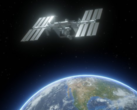Instead of tying itself up with Starlink for direct-to-cell connectivity services like T-Mobile, America's fourth-largest carrier - Boost - will piggyback on its ownership by satellite service operator EchoStar.
In order to get its merger with Sprint approved, T-Mobile had to divest of its Boost Mobile holdings and its subscribers were scooped up by DISH which was in turn acquired by EchoStar.
The acquisition produced a satellite juggernaut that will now launch up to 200 low Earth orbit satellites so that Boost can provide the same direct-to-cell service that T-Mobile offers via its partnership with Elon Musk's Starlink constellation. Called T-Satellite, the Starlink space connectivity of T-Mobile costs $10/month, save for subscribers on the Experience Beyond and Go5G Next unlimited plans, who get it for free.
It provides basic messaging in areas outside signal coverage, and recently began offering multimedia exchange as well, such as short video and audio clips, pictures and GIF images, but only on Samsung phones like the new Galaxy Z Flip 7 that it currently discounted on Amazon. In October, T-Satellite will start offering basic data service as well, with dedicated chat and social media apps working in the boondocks.
It is not yet clear how much will Boost Mobile charge for its direct-to-cell service, but, given that it will have a dedicated constellation of satellites to provide it, the pricing could be very competitive for its more than seven million subscribers.
Over 200 Aurora satellites will be launched by the Canadians from MDA Space for the initial Boost constellation, whose service is expected to launch in 2029. The overall contract would hit $5 billion, while EchoStar has plans to provide direct-to-cell satellite broadband to supported phones with thousands of satellites globally, should demand for such service create a market big enough for players other than Starlink.


















